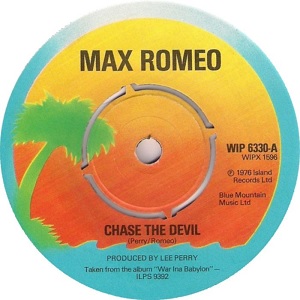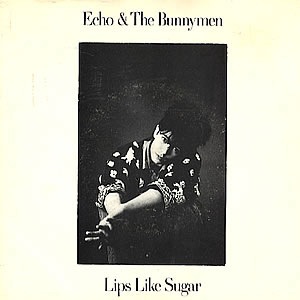Related Research Articles

François Kevorkian, also known by the stage name François K, is a French DJ, producer, remixer and label owner of Armenian descent and based in the United States of America, who started his career DJing in clubs such as the Paradise Garage and Studio 54. Kevorkian has produced and remixed work by a diverse range of musicians including the Smiths, Adam Ant, Kraftwerk, Pet Shop Boys, Depeche Mode, Diana Ross, Gloria Estefan and U2, and is considered one of the forefathers of house music.

An extended play (EP) is a musical recording that contains more tracks than a single but fewer than an album. Contemporary EPs generally contain up to eight tracks and have a playing time of 15 to 30 minutes. An EP is usually less cohesive than an album and more "non-committal".
Dub is a musical style that grew out of reggae in the late 1960s and early 1970s. It is commonly considered a subgenre of reggae, though it has developed to extend beyond that style. Generally, dub consists of remixes of existing recordings created by significantly manipulating the original, usually through the removal of vocal parts, emphasis of the rhythm section, the application of studio effects such as echo and reverb, and the occasional dubbing of vocal or instrumental snippets from the original version or other works.

The twelve-inch single is a type of vinyl gramophone record that has wider groove spacing and shorter playing time with a "single" or a few related sound tracks on each surface, compared to LPs which have several songs on each side. It is named for its 12-inch (300 mm) diameter that was intended for LPs. This technical adaptation allows for louder levels to be cut on the disc by the mastering engineer, which in turn gives a wider dynamic range, and thus better sound quality. This record type, which is claimed to have been accidentally discovered by Tom Moulton, is commonly used in disco and dance music genres, where DJs use them to play in clubs. They are played at either 33+1⁄3 or 45 rpm. The conventional 7-inch single usually holds three or four minutes of music at full volume. The 12-inch LP sacrifices volume for extended playing time.

"Shellshock" is the eleventh single released by British group New Order on 17 March 1986. The song originally appeared on the soundtrack to the movie Pretty in Pink one month prior to its single release. Production is credited to New Order and John Robie, and is loosely inspired by the 1983 Robie-produced R&B club hit, "One More Shot"—a studio project where Robie performed under the band name, C-Bank, and featuring vocals by Jenny Burton.

Dennis Emmanuel Brown CD was a Jamaican reggae singer. During his prolific career, which began in the late 1960s when he was aged eleven, he recorded more than 75 albums and was one of the major stars of lovers rock, a subgenre of reggae. Bob Marley cited Brown as his favourite singer, dubbing him "The Crown Prince of Reggae", and Brown would prove influential on future generations of reggae singers.

"Chase the Devil" is a reggae song, recorded in 1976 by Max Romeo, with the backing of Lee "Scratch" Perry's house band, The Upsetters.
Winston Riley was a Jamaican singer, songwriter and record producer. The Jamaica Gleaner notes he was one of the most successful reggae producers.
The Disciples are a dub roots reggae group that was formed in 1986 by brothers Russ D. and Lol Bell-Brown, named by Jah Shaka after providing Discomix Dubplates for his sound system. They recorded four albums of instrumental dub for Jah Shaka's King Of The Zulu Tribe label during 1987 to 1990.

"Pull Up to the Bumper" is a 1981 song by Jamaican singer, songwriter, model and actress Grace Jones, released by Island Records as the third single from her fifth album, Nightclubbing (1981). Sonically, it is an uptempo electro-disco, post-punk, dance-pop and reggae-disco song with dub production, "pulsing drums and chic new-wave licks", as well as being described as a hybrid of funk and R&B. Its lyrics were written by Jones alone, while she, along with Kookoo Baya and Dana Manno, are credited as its composers. The song's instrumental part was originally recorded in 1980 during the Warm Leatherette sessions; however, it did not make the album as Chris Blackwell found its sound not fitting in the rest of the material. It was completed for the 1981 critically acclaimed Nightclubbing album and became its third single in June 1981. The song peaked at number two on the US Billboard Hot Dance Club Songs chart and number 53 on the UK Singles Chart. When re-released in 1986, it peaked at number 12 in the UK. The track has come to be one of Jones' signature tunes and her first transatlantic hit.
Freddie McKay was a Jamaican singer, whose career spanned the rocksteady and conscious spiritual roots reggae eras.
Horatious Adolphus "Pat" Kelly was a prolific, influential Jamaican rocksteady and reggae singer and innovative, groundbreaking sound engineer working with King Tubby, Bunny Lee and Scientist (musician), whose career began in the mid-1960s. He recorded as a solo artist and as a member of the vocal group the Techniques. Slim Smith, who had been the lead vocalist in the band, left The Techniques in 1966 to be replaced by Pat Kelly. The shift from ska to rocksteady suited The Techniques, with a string of hits in 1967 and 1968 notably "You Don't Care" and "Queen Majesty", tunes which were versioned by Big Youth, Tony Tuff, Duke Reid, Tommy McCook, Sonia Pottinger's High Note label with The Revolutionaries, Ronnie Davis, The Itals, Cornell Campbell and many more

"Lips Like Sugar" is a single by the English rock band Echo & the Bunnymen, which was released in July 1987. It was the second single from their eponymous fifth studio album (1987).
Jarret Lloyd Vincent, better known by one of his stage aliases Bim Sherman, was a Jamaican musician and singer-songwriter.
Winston Anthony Morris, known professionally as Tony Tuff, was a Jamaican conscious roots reggae singer and a member of The African Brothers in the late 1960s and 1970s before embarking on a solo career.
Tradition are a United Kingdom-based reggae band. They enjoyed success with UK reggae audiences in the late 1970s, and were signed by RCA Records. They split up in 1983 but reformed over twenty years later.

"Everybody Salsa" is a song by British band Modern Romance, released as a 7-inch and 12-inch single by WEA in 1981. It was also released in the United States, Benelux, Germany, France, Italy and Mexico. The song was produced by David Jaymes, Geoff Deane and Norman Mighell. It was their first entry into the charts, reaching No. 12 on the UK Singles Chart and No. 19 on the Irish Singles Chart.
The Viceroys, also known as The Voiceroys, The Interns, The Inturns, The Brothers, and The Hot Tops, are a conscious roots reggae vocal group who first recorded in 1967. After releasing several albums in the late 1970s and early 1980s, they split up in the mid-1980s. They reformed and recorded a new album in 2006.
Berris Simpson, better known as Prince Hammer, is a Jamaican reggae deejay, singer, and record producer.

"The Freeze" is a song by the English new wave band Spandau Ballet, released on 12 January 1981 as the follow-up to their debut single, the number 5 UK hit "To Cut a Long Story Short". As was the case with that release, the 7-inch single of "The Freeze" featured a dub mix on its B-side, and the 12-inch single had two additional mixes of the song geared toward dance clubs. The cover art used for both formats of the single also repeated its predecessor in having a simple black-and-white classical motif. This design, however, was also seen on the sets of the music video for the song. Reviews of "The Freeze" were mixed. It reached number 17 on the UK Singles Chart.
References
- 1 2 Heath, ML (2010) "Joe Gibbs: 12" Reggae Discomix Showcase Volumes 4 and 5", PopMatters, 7 October 2010, retrieved 2011-01-01
- ↑ Anderson, Rick "Reggae Discomix Showcase, Vol. 3 Review", AllMusic, retrieved 2011-01-01
- ↑ O'Brien Chang, Kevin & Chen, Wayne (1998) Reggae Routes: The Story of Jamaican Music, Ian Randle Publishers, ISBN 976-8100-67-2, p. 56
- ↑ Echoes, 8 November 1986, p. 2